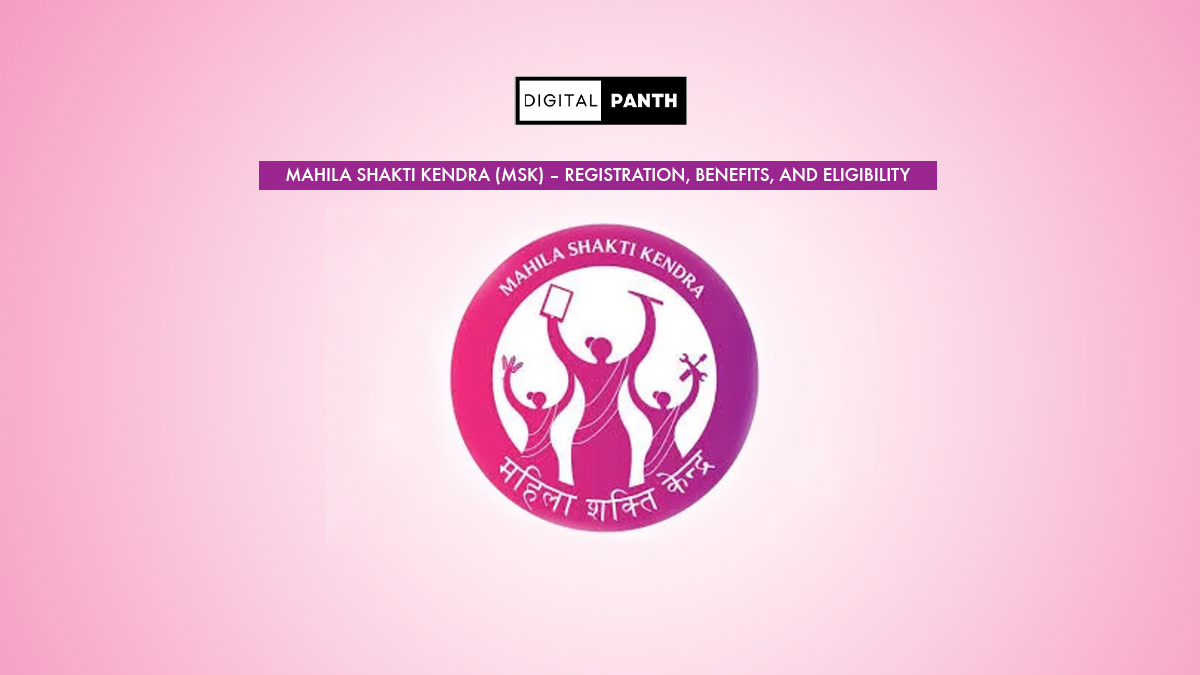Mahila Shakti Kendra (MSK) is a Government of India initiative overseen by the Ministry of Women and Child Development. The scheme was launched in 2017 and is intended to support women’s empowerment and enable them to enhance their status, independence, skills, employment linkages, and navigate welfare programs through information access. The program acts as a community-level mechanism to bridge the gap between rural women and their entitlements under different government initiatives.
MSK also supports the goals of Digital India, Skill India, and Beti Bachao Beti Padhao by serving as a resource and advocacy centre to improve the social, educational, and economic conditions of women, especially in remote rural areas.
The scheme operates a national network of Mahila Shakti Kendras established at the block, district, and national levels. These centres act as counselling, awareness generation resources, training, and empowerment centres for women.
Objectives of Mahila Shakti Kendra
Mahila Shakti Kendra’s key objectives are to:
- Provide an interface for rural women to access information on government programs and schemes.
- Enhance skills and capacity-building for self-employment and entrepreneurship.
- Improve health, education, and financial awareness among women.
- Promote gender equality and enable women to become active decision-makers in households and communities.
- Strengthen community-level institutions like self-help groups (SHGs) for collective empowerment.
- Offer counselling services on legal rights, domestic violence, and related social issues.
Eligibility Criteria and Policy Guidance
- Women applicants must be Indian nationals.
- A degree of preference will be given to marginalised and socially and economically weaker sections of women in rural areas.
- The minimum age to participate in self-employment or livelihood programs is 18 years.
- Registration at local MSK centres may require supporting documents, including Aadhaar, bank account information, and proof of residence.
- Women-led community groups, NGOs, and SHGs may apply for training and support programs.
- Participants must comply with guidelines for participation in skill training modules or community activities.
Registration and Application Process
The MSK Scheme terminated as of April 1, 2022, following a third-party review and stakeholder consultation. The purposes of women’s empowerment are now being addressed through the “Mission Shakti” program, a unitary program across the Ministry of Women and Child Development.
Benefits and Advantages
Mahila Shakti Kendra provides several benefits for women in the social, educational, and economic spheres:
- Skill development programs for tailoring, handicrafts, food processing, and other trades.
- Link to government schemes such as Mudra loans, PMJDY (Jan Dhan Yojana), scholarships, and health interventions.
- Counselling and guidance around legal rights, domestic violence, and education for the girl child.
- Community-level awareness sessions around nutrition, maternal health, sanitation, and financial literacy.
- Support for micro-entrepreneurial ventures and job placements through tie-ups with training institutions and industry.
- Strengthening collectives of women-led collectives (SHGs) to pool resources and develop sustainable income models.
- Promote gender inclusion and social empowerment in patriarchal rural systems.
Challenges and Opportunities for Improvement
While the MSK model is based on empowerment, there are multiple opportunities for improving its operation:
- Awareness Levels: The awareness issue is evident as many rural women do not know about the MSK inputs due to a lack of awareness campaign in rural areas.
- Resource Gaps: In several rural areas, human, physical, and non-financial resources are limited at the block and district level; this impacts women’s access and outreach.
- Training Quality: During capacity and skills training programmes, training content quality often lacks sufficient detail and linkages to markets.
- Lack of Financial Inclusion: While linkages to schemes exist, women continue feeling unassured and apprehensive about seeking a loan or credit.
- Tracking Outcomes: Outcome tracking on women’s work, entrepreneurship and schooling is not regular practice in many states.
- Cultural Barriers: Patriarchal barriers in some rural areas inhibit women from reaching empowerment centres.
Conclusion
Mahila Shakti Kendra plays an empowerment role in women’s socio-economic empowerment. The MSK model will lead to longer-term gender equality in intended long-term women-led development. Women are encouraged to contact their nearest district MSK or SHG regarding the scheme and their opportunities.
Disclaimer: The information provided here is for general awareness and educational purposes only. Scheme guidelines, eligibility, and processes may change over time. Please refer to the official Ministry of Women and Child Development website for the latest updates.
